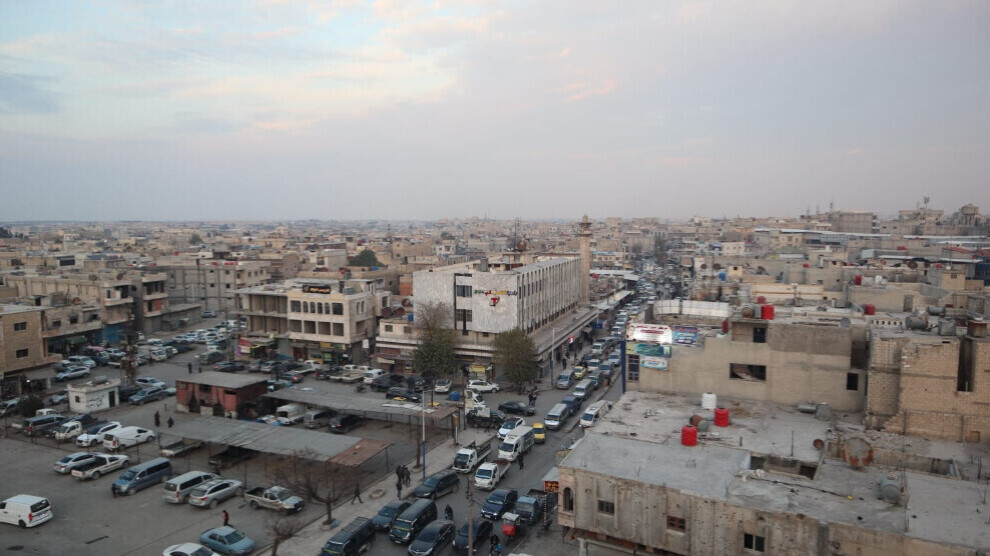Changing balances in Syria...
Journalist Nazım Daştan, who fell martyr in a drone attack by the occupying Turkish state, wrote the following in his article for ANF on December 6, 2024
Journalist Nazım Daştan, who fell martyr in a drone attack by the occupying Turkish state, wrote the following in his article for ANF on December 6, 2024

We republish an analysis that journalist Nazım Daştan, who fell martyr in a drone attack by the Turkish state on Thursday 19 December, wrote for ANF on 6 December 2024.
The Syrian civil war, with Aleppo as its epicenter, has essentially reset to its initial state after 13 years, following Hayat Tahrir al-Sham's (HTS) takeover of the city. After Aleppo, the HTS advanced into Hama and even pushed into Homs, capturing some villages. HTS's advance disrupted all balances within Syria, leaving the future trajectory of the war uncertain.
Battle of blocs
HTS and the Syrian National Army (SNA), which operates under the Turkish state, have occupied certain regions, reflecting the repercussions of international interventions in the Middle East. The bloc consisting of Russia and Iran, which is responsible for much of this intervention, continues to maintain its "silence."
Clashes spread deeper into Syria
The clashes are expected to spread to southern Syrian cities such as Homs city center, Daraa, and Quneitra. Additionally, sleeper cells affiliated with radical Islamic groups in these areas are reportedly becoming active.
New Syria has whetted turkey's appetite
The evolving situation in Syria has whetted the appetite of many regional powers eager to exploit the opportunity to occupy parts of the country, chief among them being Turkey. Viewing the shifting dynamics as a chance, the Turkish state seeks to completely eliminate northeastern Syria. Turkey is reportedly preparing to capitalize on the power vacuum in Syria, especially targeting cities like Manbij, with plans to depopulate these areas.
The perception of ‘winning without fighting’ in Manbij
Ankara aims to create a perception of ‘winning a war without a war’ in the region by positioning media outlets fed by its Special Warfare Department along the border and disseminating psychological propaganda to establish its superiority. However, as these efforts have been exposed, the Turkish state and its allied groups have shifted to bombarding villages along the border, aiming to intimidate the local population.
Attempts by Ankara-backed militant groups to infiltrate the western, northern, and southern fronts of Manbij have so far been thwarted by the fighters of the Manbij Military Council.
West of the Euphrates policy
After the fall of Aleppo, the century-old policy of displacing Kurds to the west of the Euphrates River has been reignited with a focus on Manbij. Due to its strategic location as the gateway to Aleppo and a key juncture connecting the eastern and western banks of the Euphrates, Manbij holds critical importance. Furthermore, the city has exemplified coexistence during Syria’s civil war, showing that it could be a solution to the country’s longstanding chaos. Clearly, an occupied Manbij would undermine this progress.
Seeing the Kurds as actors in Syria
One of Ankara’s main objectives is to prevent Kurds and their allied dynamics from emerging as actors in Syria’s new reality. To this end, Turkey tries to prevent the Syrian Democratic Forces (SDF) from developing new initiatives and playing a role by opening harassing fires in some places and opening different fronts in others. The persistent attempts to draw the Autonomous Administration areas into the war are based on such policies. This is one of the main reasons for targeting Manbij.
Possible scenarios
As a matter of fact, the spread of the war to the south of Syria and its shift towards the Autonomous Administration areas may enable the SDF and the forces defending the people to undertake new roles and operations. With the advance of HTS to Homs, the movement of ISIS from the desert areas of Homs to the Deir ez-Zor line shows a different dimension of the war.
At this stage, the Turkish state, which does not want the Autonomous Administration to get stronger, is trying to persuade not only the SNA gangs but also HTS. However, remembering the examples of Mosul and Kobanê, HTS is cautious in this regard.